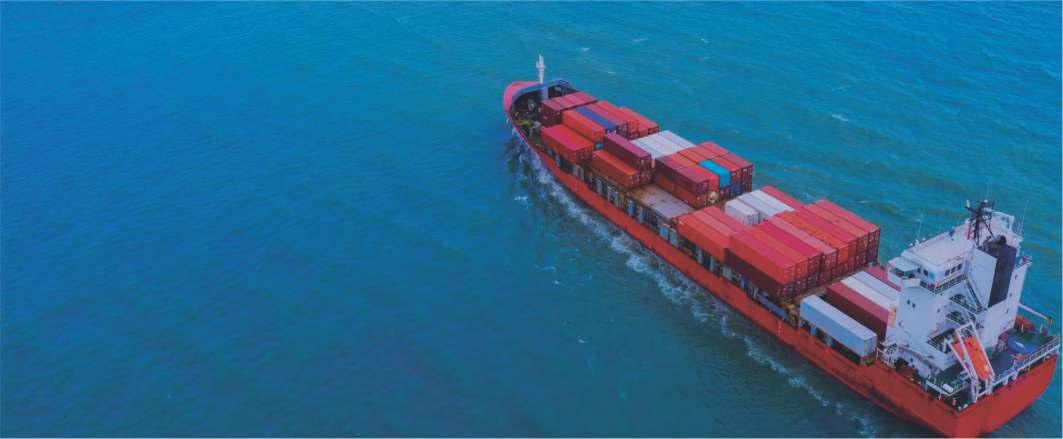
2 minute read
MSC reports progress on delivering Sustainability Commitments
GENEVA: MSC is committed to enabling resilient and sustainable supply chains, by catalysing the net-zero transition and contributing to an inclusive global trade system. That is the key message emerging fromMSC’s2022SustainabilityReport,publishedthisweek.
MSC is one of the world’s leading maritime cargo businessesand,giventhat90%oftheworld’sgoodstravelby sea, it is a key player in keeping the wheels of the global economy turning. By connecting local businesses and facilitating access to global markets, MSC has an important societal role to play supporting economic activity, a key driverofwellbeingofpeopleandcommunities.
Advertisement
MSC’s Cargo Division takes a holistic approach to sustainability, building on the fundamentals of business ethics, protecting our blue planet and ensuring a safe place toworkwhilefocusingonthreestrategicpriorities:enabling the decarbonisation of logistics, fostering inclusive trade andaddressingsocialchallenges.
MSChassetacleargoalofcompletenetdecarbonisation by 2050, without relying on external offsetting. Its focus is on exploring all solutions to accelerate the global energy transition, while ensuring that MSC’s fleet is ready to adopt zero-carbonfuelsastheybecomeavailable.
MSC continues investing in record-size, energy-efficient ships that mean lower CO2 emissions per container carried. 2022 saw MSC’s first LNG-powered ships entering service as a transition solution on its decarbonization pathway, and in 2023-26 it will welcome 95 new ships with the flexibility to operateusingdifferentfuels.
The scaling up and widespread deployment of low- and zero-carbonfuelswillbekeyinacceleratingthetransitionto sustainable energy sources. MSC envisages a net zero future that will see shipping draw on a combination of fuels, and believes that bio and synthetic Liquefied Natural Gas (LNG), synthetic and bio-methanol and green ammonia maybecomefuelchoicesforlargerocean-goingvessels.
MSCisalsoworkinghardonenergyefficiencymeasures to progressively reduce its carbon intensity, modernising its current fleet, continuously upgrading the company’s infrastructure assets while also improving vessel performanceandoptimisingallvoyages.
Decarbonising shipping and logistics goes beyond fuels and technologies MSC strongly believes that its people – including research, development and technical teams as well as the seafarers working onboard MSC ships – are what will make decarbonization possible, and is determined to ensure a just transition as it progresses along its journey to net zero. For this reason MSC continues its efforts engaging with others across the industry to support the training, upskilling and reskilling ofitsglobalworkforce.
In addition to mitigating its environmental impact, MSC is also very clear about the importance of responding to the challenges of an ever-evolving and complex global landscape. That is why MSC is actively working to help build resilient global supply chains that aim to anticipate and can withstand disruptions, keeping trade flowing and ensuring that people can access the essential goods they need to thrive.
MSC’s focus remains on ensuring secure and reliable links to ports through intermodal solutions and logistics hubs to address today’s increasingly complex and fragmentedsupplychains.Acrucialpartofitssustainability approach involves supporting remote and vulnerable economies – who often face higher shipping costs due to their dependency on imported goods – by removing trade barriers and helping communities maintain the market connectionsonwhichtheydepend.
The 2022 Sustainability Report shows how MSC’s Cargo Division is progressing along its sustainability journey. The shipping and logistics industry has a key role to play in accelerating the net-zero transition and creating connectionstowardsamoreresilientandsustainableworld.

















